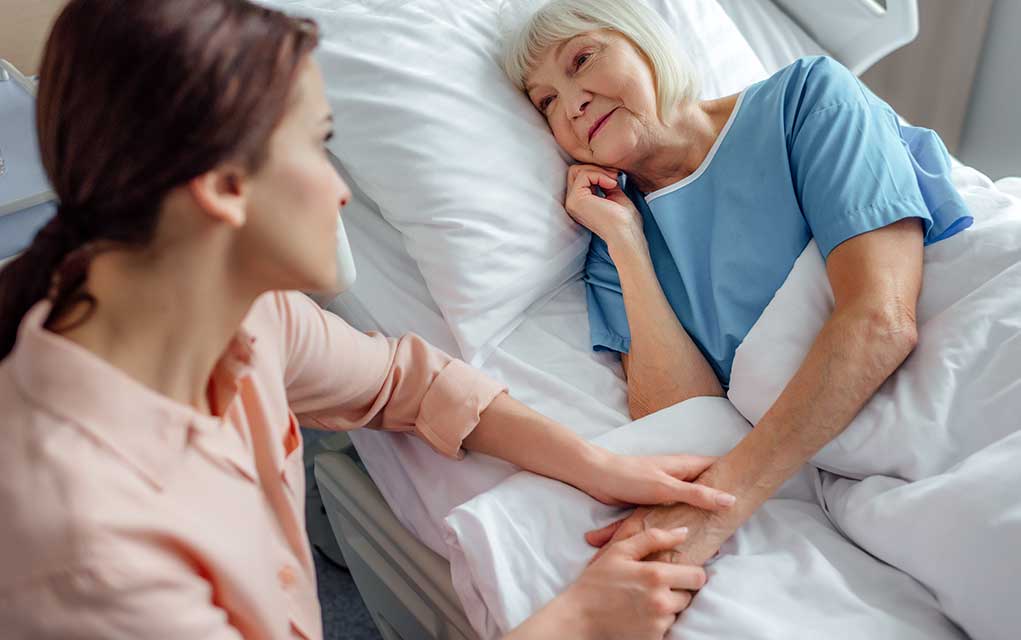Could Visiting Someone in the Hospital Make You Sick?

What’s the germiest place on the planet? Well, it could very well be your local hospital. Studies have shown that hospitals are hotbeds for nasty pathogens, such as Staphylococcus aureus (MRSA), Clostridium difficile (C. diff) and vancomycin-resistant Enterococci (VRE). People who visit the hospital are at risk of picking up one of these bugs and carrying it to another location or coming down with an associated illness.
Hospitals contain loads of germs and pathogens that can make you sick after a visit. What’s more, many hospital bacteria are antibiotic-resistant, which means they fall under the category of a superbug. Superbugs are notoriously difficult to treat and can lead to an extended illness.
Is there a hospital visit in your future? Learn how you can protect yourself from superbugs, here.
Superbugs Lurk in Hospitals and on Patients
The surfaces, floors, linens and gadgets at hospitals can all be contaminated with bacteria. For example, researchers have found that C. diff, a highly infectious bacteria spread through fecal matter, can live on sheets even after they’ve been commercially washed. Wore than sheets, floors are some of the dirtiest places in hospitals, containing multiple types of pathogens. Other contaminated items include privacy curtains, telephones, T.V. remotes, personal computers, cell phones and more.
Just how nasty are these pathogens? We don't want to scare you, but: Very! MRSA, a type of staph infection, can cause skin infections, blood infections and pneumonia. It is difficult to treat and, in some cases, can be deadly. Similarly, VRE can cause wound and urinary tract infections. It is also resistant to antibiotics. C. diff spreads quickly in hospitals and nursing homes, resulting in multiple cases of stomach pain and severe diarrhea in patients.
The Story Behind Antibiotic Resistance and Hospitals
Hospitals are ideal for creating superbugs. Also referred to as antibiotic-resistant germs, superbugs can appear just days after someone begins antibiotic treatment for an infection. How so? As infections are treated with antibiotics, the bacteria mutate in order to survive. The result is antibiotic-resistant bacteria that continues to thrive despite treatment.
Hospitals are rife with superbugs because they epitomize the perfect storm. In a hospital, there are a lot of bacteria being treated with antibiotics, and they’re all underneath the same roof. Close proximity and the busy nature of hospitals make transmitting the bacteria very easy. A recent study found that 14 percent of hospital patients had a multidrug-resistant organism (MDRO) on their hands.
How to Protect Yourself from Hospital Superbugs
The dirtiest places in a hospital are elevator buttons, bed curtains, cell phones and computer keyboards. What do all these things have in common? Hands! Hands transmit superbugs. Therefore, the best way to protect yourself against them is to wash your hands and take advantage of hand sanitization stations frequently while you’re at the hospital.
Superbugs love hospitals but don’t worry. You can protect yourself by keeping your hands clean. Wash your hands or sanitize each time you come into contact with a person or surface in the hospital. Also, avoid touching your face and your nose, as this one of the ways bacteria gains entrance to your body.
Copyright 2024, Wellness.com

Related Keywords







